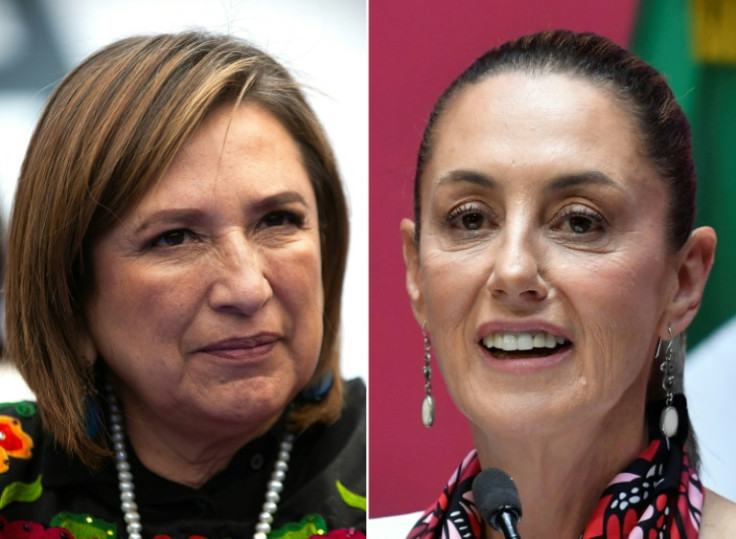
The two main candidates in Mexico's upcoming presidential elections traded accusations of cartel ties in their last debate before the country heads to the polls on June 2.
Xóchitl Gálvez, who represents an opposition coalition, said the current administration lacks a strategy to address violence, saying its strategy has been "giving the country to organized crime."
Claudia Sheinbaum, in turn, defended the policies of the Andrés Manuel López Obrador (AMLO) administration, not engaging with Gálvez and saying she will strengthen the National Guard that the current president created.
"The drug war continued until President Andrés Manuel López Obrador arrived and changed the policy of declaring war to building peace," said Sheinbaum, who holds a wide advantage in the polls.
She also presented some ideas of her own, which she said have contributed to lowering crime in Mexico City during her tenure as mayor. They include creating police intelligence units, increasing cooperation between officers and prosecutors and exponentially increasing the amount of security cameras.
During a passage of the event, Gálvez made reference to a slogan of AMLO's security policy called "hugs, not bullets," which puts the focus on addressing what the government says are the root causes that lead people to join criminal organizations. "Hugs for criminals are over." She also promised to reverse AMLO's policies of using the army for activities not related to security such as building railroads.
Security is at the forefront of the Mexican debate, especially as politically-motivated killings have topped 125 this electoral cycle. The figure includes more than 20 candidates across the country, with the most recent cases taking place on Sunday.
Two attacks against mayoral candidates in the southern state of Chiapas left nine people dead, the prosecutor's office in the organized crime-plagued region said Sunday. The two candidates survived, though one was wounded.
Last week, six additional people people, including a minor and mayoral candidate Lucero López, were killed in an ambush after a campaign rally in the municipality of La Concordia, neighboring Villa Corzo.
April was the deadliest month this year, according to government data. The figure is close to the historic high reached when president Andrés Manuel López Obrador took office in 2018.
The motivations behind these violent acts are clear, according to a report by The Washington Post: organized crime seeks to install sympathetic leaders in local offices to further their exploitation of Mexican communities.
© 2024 Latin Times. All rights reserved. Do not reproduce without permission.







